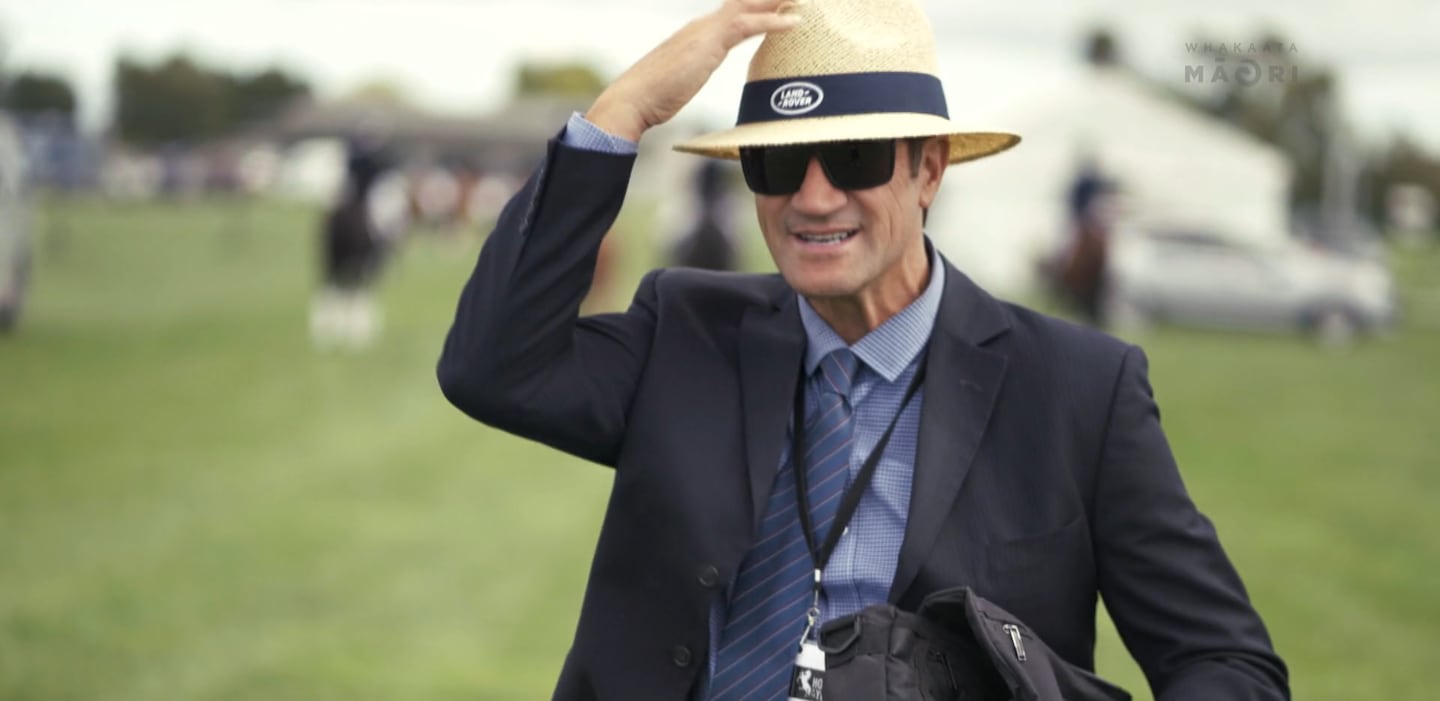Mura Love has made history as the first New Zealander to become a level 3 Para Dressage judge under the International Federation for Equestrian Sports (FEI) and one of only 14 people in the world with the qualification.
Para Dressage is the sport of dressage for riders with a physical impairment. To achieve eligibility for his status as a level 3 Para Dressage judge, Mura completed criteria set out by the FEI before taking the three-day examination in Norway last year.
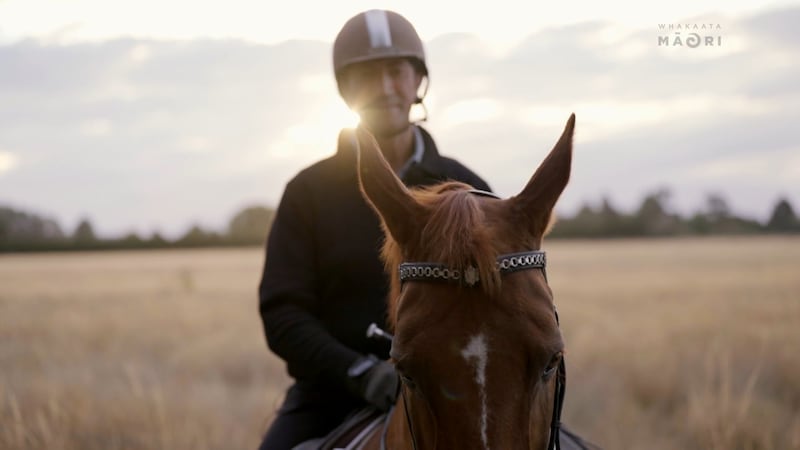
Mura says having this status is “quite a responsibility but a good one because you can also be there to really help the riders and also represent New Zealand”.
“When you’re in other shows around the world, you get to talk with other international colleagues, you get to see what the standard is like, what their training is like and, when I come home to New Zealand, then I can try and put some of that back into what I’m doing as a judge.”
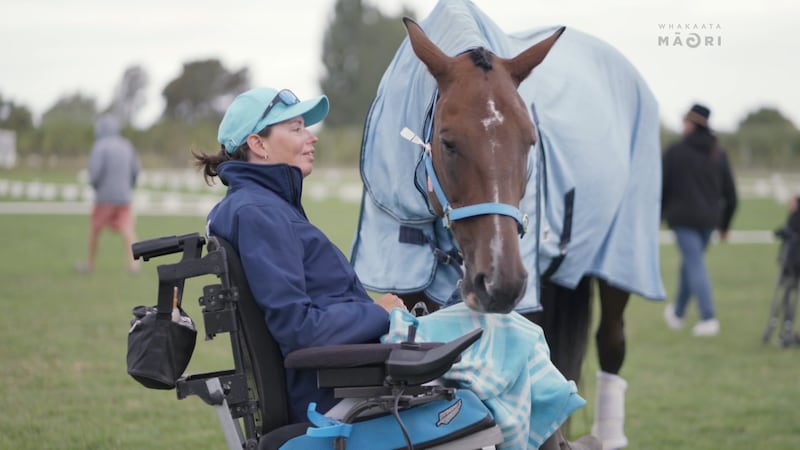
Para dressage rider Jodi Thorne is one of the athletes Mura judges. She has facio scapular Humeral Muscular Dystrophy, a genetic muscle disorder in which the muscles of the face, shoulder blades, and upper arms are among the most affected.
Jodi says receiving support from Mura, considering his international experience, is beneficial for para riders.
“It’s great to have that here in New Zealand because we can get a real insight in how we’re doing and how we’re kind of looking on the level across the world. He always gives us really great positive comments on the sheets what we need to do to improve.”
Nicola Essex-Wills is a para dressage rider with rheumatoid arthritis, a chronic inflammatory disorder.
“I’ve known Mura for a number of years in para equestrian. He’s developed so much as a judge and he really is a mentor as well… We are just so fortunate that he is here to sit in the car and judge us with all that knowledge. He’s been a huge help to para dressage in New Zealand.”
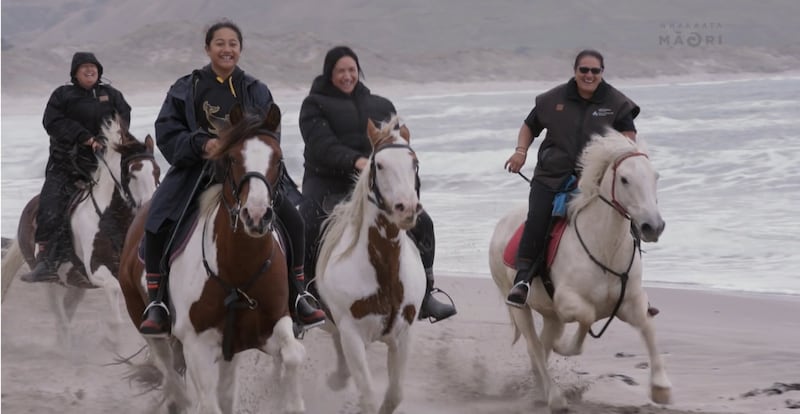
Whāngārā – where he calls home
In the past year Mura has judged all over the world including in Australia, Germany, Japan, Norway and in the US. But Whāngārā is where he calls home, a small community halfway between Gisborne and Tolaga Bay on the east coast, Te Tai Rāwhiti. Whāngārā is well known as the home of the movie, Whale Rider, as Paikea who sits astride the whale is their common ancestor.
“I couldn’t tell you how proud I am to be from Whāngārā. I think all of us that are from there just have this real tight bond with where we are from, who we are, that strong sense of identity and a really strong whakapapa as well.”

On his mother’s side, Love is from Whanganui iwi Te Atihaunui-ā-Pāpārangi. His whānau in Whāngārā also have connections to Ngāti Konohi, a subtribe of Ngāti Porou.
From childhood, Mura, his brother and sisters, including some who were whāngai (adopted), grew up on horseback.
“Dad was heavily involved in horses, so I guess we just followed in his footsteps. We all somehow learned to ride since we were very little. We all had horses. They all ran as a big herd,” says Love.
“We would go out and catch them all and we had a really cool connection with horses. We never had saddles. We had maybe like two bridles between five of us, or probably even less.”
10 tamariki riding for fun
Mura’s dad, John, says at one point he and his wife, Mura’s mum, were looking after 10 tamariki in their home including their own children and whāngai children.
“We had all of them and put them through and helped them along on those things. Horses mainly,” says John.
Mura says they grew up in a generation where there wasn’t a lot of technology, so they had to make their own fun, and “that’s where the horses came in”.
“We would get up in the morning, we would catch the horses, we would be gone all day. We would go swimming at the beach or at the river or we would ride over the hills. Sometimes we would go down to different parts of the coastline and tie the horses up to some driftwood and look for some kaimoana…They were sort of our entertainment really but also our livelihood as well.”
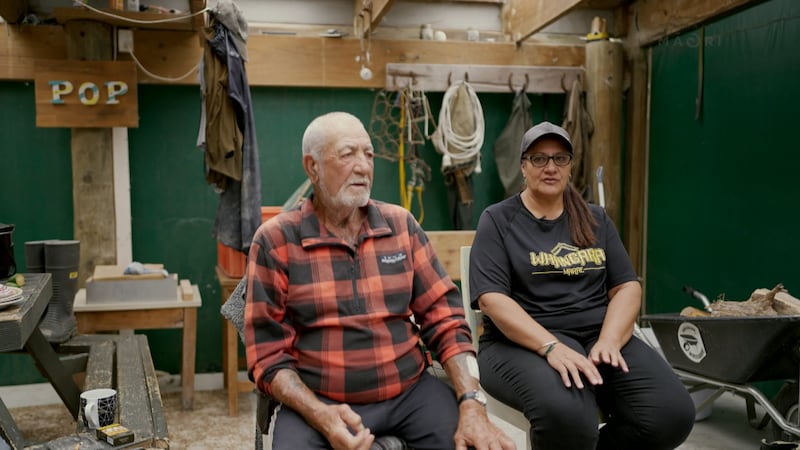
Muras’s younger sister, Mihi, says Mura always rode “differently from the rest of us”.
“We pretty much rode coasty style always, like a sack of spuds but he always rode properly and, even though we played polo cross, he still rode proper in that. He was really good at it. The connection between him and his horse was always perfect.”
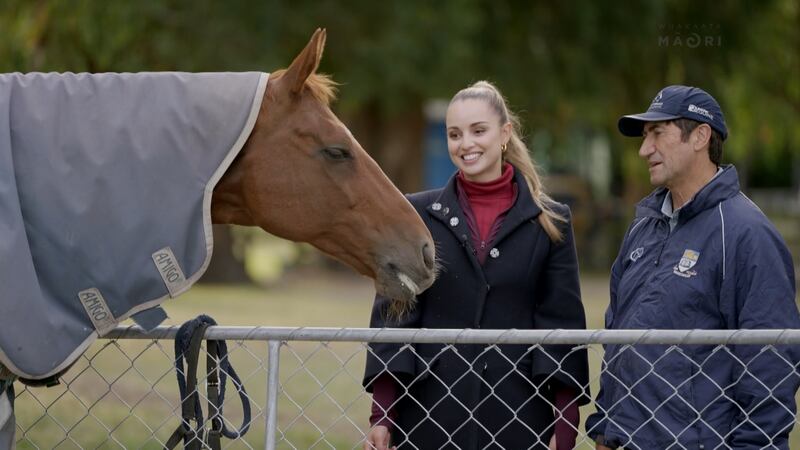
How Mura got involved as a judge
Mura became involved in para judging by chance, while attending a dressage Judges seminar in Sydney, he says.
An Olympic-level Australian para dressage judge, Jan Geary, who he met there, encouraged him to pursue para dressage. And back home in Aotearoa, former Equestrian Sports New Zealand para-equestrian sports manager Judy Alderdice was a huge support creating the pathway for him towards FEI International Para Judging.
“Judy gave me the opportunity and the motivation, so we could work together to make things happen. I didn’t come from a background of para apart from knowing some of the athletes competing in dressage. But when you’re on a pathway you’ve got a plan and a goal, you just get involved and become immersed in the discipline, because – like all sport – you need to understand it within its entirety so you can grow and develop a depth of understanding.”
Mihi and John say their whānau is “a hundred percent proud of Mura and his achievements”.
“He has pretty much manifested this journey from where we were as kids really and he’s worked really, really hard to achieve all of the goals that have put him where he is today.”
Mura’s nieces and nephews also look up to Mura for inspiration.
“He role models to not just our kids, but to all of us and to everyone that he knows or that knows him that you just have to dream big. You have to dream big and you have to put things in place to reach those goals because you can come from the simplest of backgrounds and still reach the epitome of where he is,” says Mihi.
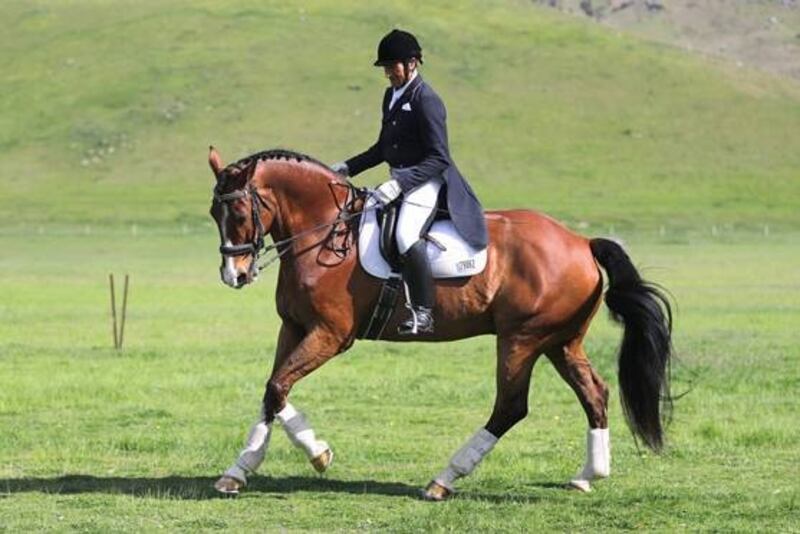
The next step - Olympics?
Mihi says she and her whānau would love to see Mura judge at the Olympics.
“We all know that that’s definitely been one of his long-term goals but in actual fact he’s made it short term really. But that’s definitely one thing that we want to see him do. We know that he’ll get there. He’ll get there.”
Mura is humble about the topic but is open to the opportunity.
“I would never say never. I think when you’re in a sport, everything’s a bit of a long road. But if I did the work that was needed to do and I had the opportunities that grew me in that way that sort of gave or created or secured the opportunity, then I wouldn’t say no.”

